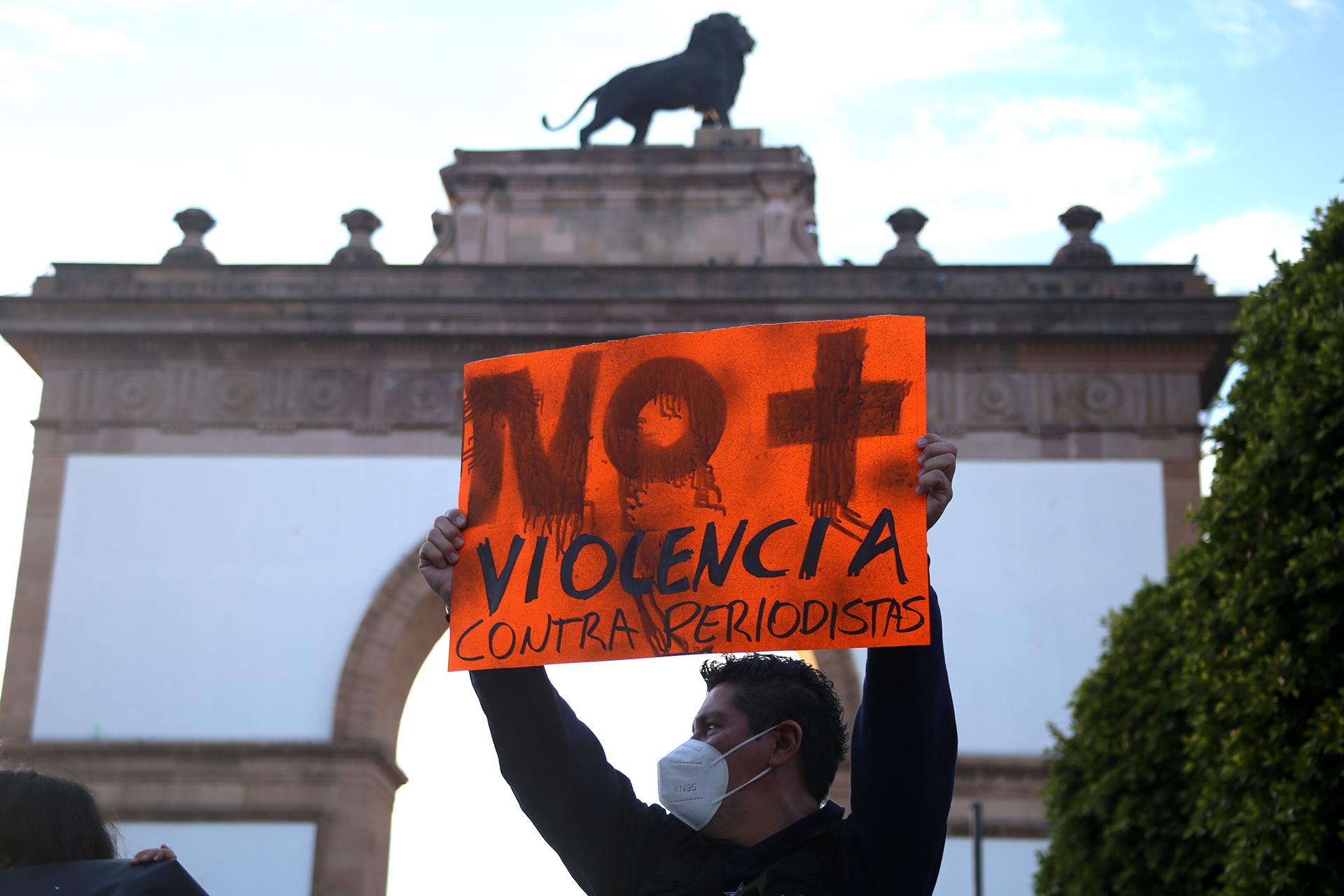Mauricio Estrada Zamora, a 38-year-old crime reporter for the local newspaper La Opinión de Apatzingán, left his workplace in the Mexican state of Michoacán late in the evening on February 13, 2008. It was already dark when he locked the editorial offices to go home to his wife and young son. But he never arrived. That same night, Estrada’s car was found abandoned on the side of the road. A short time later, his family reported him missing. However, the case was never solved by the Mexican authorities. Almost 15 years later, there is still no trace of Estrada.
An unsolved criminal case of suspected kidnapping and murder would spark column inches and large-scale police operations in other countries. But in Mexico, Estrada’s fate hardly merits a headline – and is far from an isolated case: 27 journalists have disappeared there since 2003, according to the press freedom organization Reporters Without Borders (RSF), and all of them are still considered missing. All are suspected cases of abduction or “enforced disappearance” but not one of them has been completely solved. In a few instances, suspected henchmen have been arrested, but the instigators of the crime remain at large. This was also the case with the journalist Roberto Carlos Flores Mendoza who disappeared on September 20, 2022.
It is no secret that the situation for media professionals in Mexico has been precarious for years — and has worsened of late. Figures from RSF show that no other country worldwide has seen so many journalists killed in connection with their work or disappearing without trace in unexplained circumstances as in Mexico. According to RSF’s count, 15 journalists have been killed so far in 2022, at least 12 of them because of their work. This is more than ever before in such a short stretch of time.
A vicious circle of violence and impunity
As worrying as these horrendous figures are, the greatest threat to journalists in Mexico comes from the rampant corruption of the authorities and their close ties to organized crime, especially to the drug cartels. It is precisely these networks that paralyze the Mexican justice system at all levels. Crimes against media professionals are rarely prosecuted, let alone punished. This in turn creates a deadly spiral that is most threatening to journalists trying to investigate this entrenched corruption. Even President Andrés Manuel López Obrador, who announced reforms when he took office, has not been able to stamp out this vicious circle of violence, corruption and impunity.
It is true there are already various government measures in Mexico to improve the situation. In practice, however, they often prove ineffective. The Bertelsmann Transformation Index (BTI) states that although the government of Andrés Manuel López Obrador has made the fight against corruption a priority, the results remain “sparse, if not contradictory”. Some former officials and government representatives are being investigated and there has been a large-scale operation against oil theft. Yet the fact that the government is trying to circumvent or weaken anti-corruption agencies raises doubts.
When Mexico Shut Down Changiz
The judiciary is also, the BTI says elsewhere, “clearly biased” and citizens continue to face a “a very corrupt judicial system in which criminals are released and innocent people are detained for years before they are even tried”.
A reprimand from the UN might improve things
In a bid to improve the catastrophic security situation, press freedom organizations like RSF are fighting at various levels to increase the pressure on the Mexican authorities. For example, RSF is involved in the “Defending Voices” program, together with its Mexican partner organization Propuesta Cívica, to investigate unsolved murder and kidnapping cases. On November 2, the International Day against Impunity for Crimes against Journalists, RSF and Propuesta Cívica went one step further: together they submitted two complaints, so-called “individual communications”, to the UN Human Rights Committee in Geneva.
The UN should now take a clear position on the case of the newspaper journalist and university lecturer Ramón Ángeles Zalpa, who went missing in 2010, and also on the Mauricio Estrada Zamora file. The organizations spent a year preparing for this step in close consultation with the families concerned. The selection of these two cases is not coincidental. Both Zalpa and Estrada disappeared in the state of Michoacán, and RSF and Propuesta Cívica have recently analyzed, in detail, the work of the public prosecutor’s office there. They allege that the two cases had numerous omissions in their investigations, both at the state and the national level. The crimes were not investigated with due diligence, nor were there serious efforts to find the journalists and to identify the perpetrators and those behind them.
In view of these findings, the organizations accuse the Mexican state of having violated its obligations under the International Covenant on Civil and Political Rights. Therefore, the UN Human Rights Committee should now call on Mexico to finally conduct an efficient and thorough investigation and to compensate the affected families. Whether the Committee will actually make such a “recommendation” remains to be seen.
[Bertelsmann Foundation first published this article.]
The views expressed in this article are the author’s own and do not necessarily reflect Fair Observer’s editorial policy.
For more than 10 years, Fair Observer has been free, fair and independent. No billionaire owns us, no advertisers control us. We are a reader-supported nonprofit. Unlike many other publications, we keep our content free for readers regardless of where they live or whether they can afford to pay. We have no paywalls and no ads.
In the post-truth era of fake news, echo chambers and filter bubbles, we publish a plurality of perspectives from around the world. Anyone can publish with us, but everyone goes through a rigorous editorial process. So, you get fact-checked, well-reasoned content instead of noise.
We publish 2,500+ voices from 90+ countries. We also conduct education and training programs
on subjects ranging from digital media and journalism to writing and critical thinking. This
doesn’t come cheap. Servers, editors, trainers and web developers cost
money.
Please consider supporting us on a regular basis as a recurring donor or a
sustaining member.
Support Fair Observer
We rely on your support for our independence, diversity and quality.
Will you support FO’s journalism?
We rely on your support for our independence, diversity and quality.






